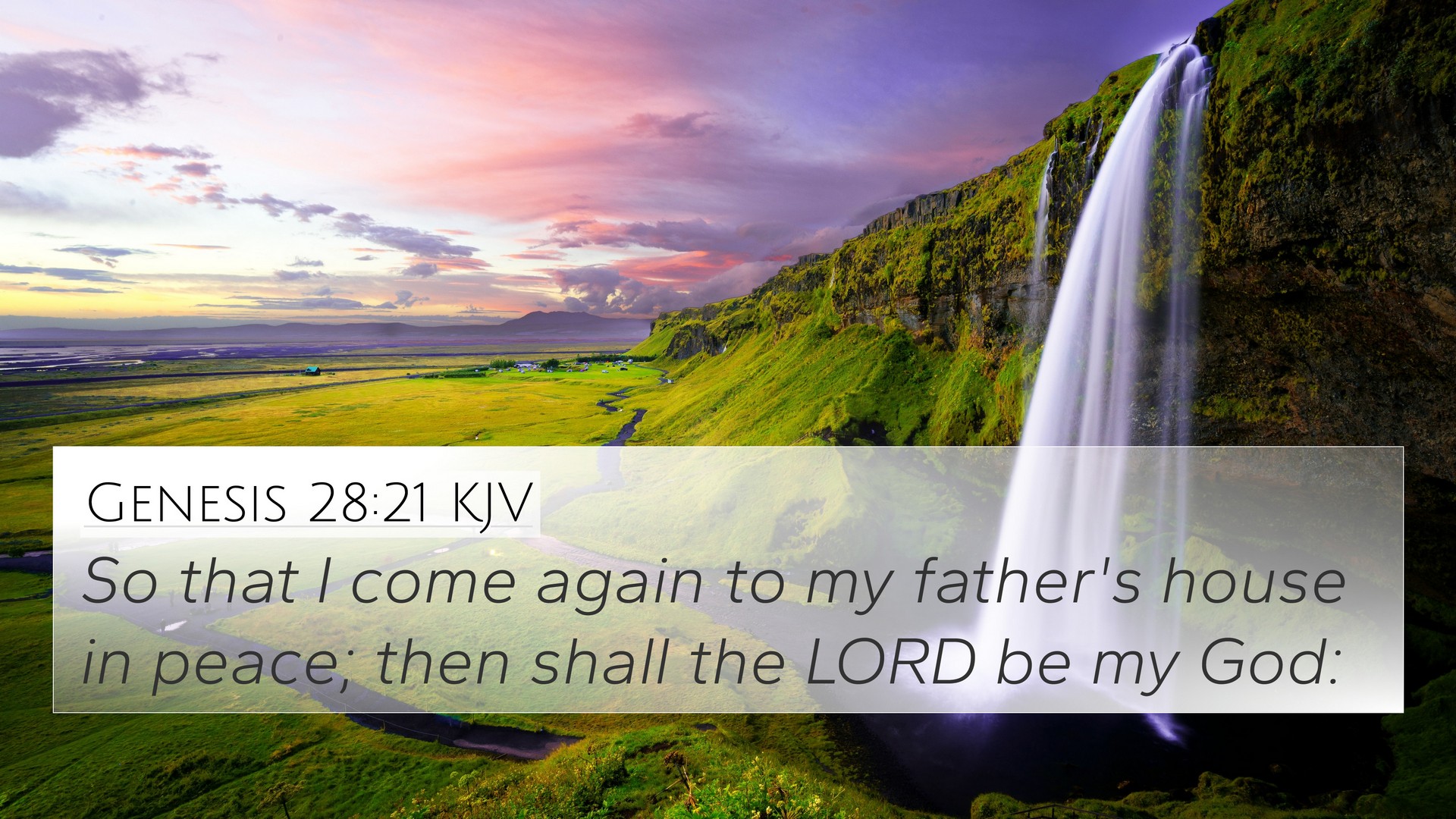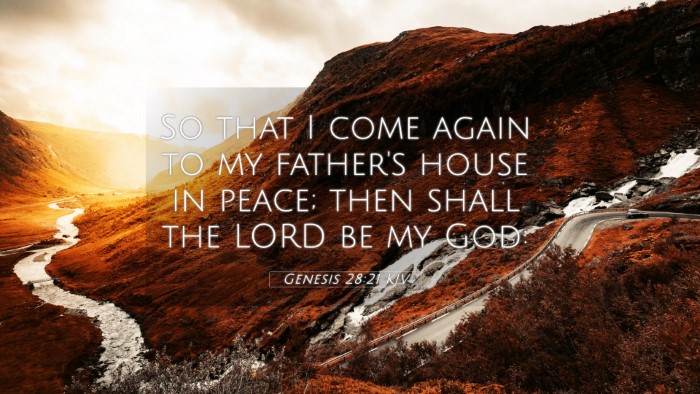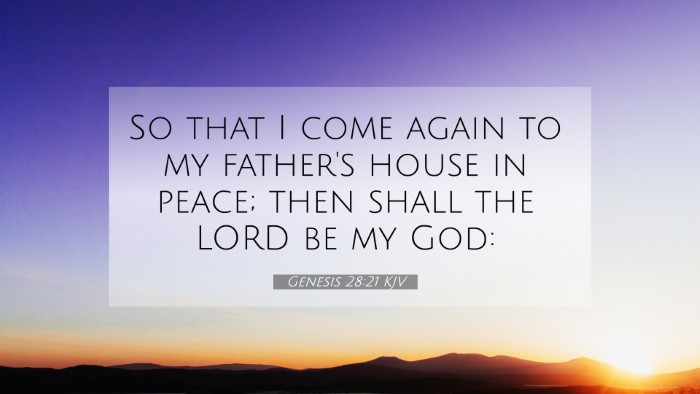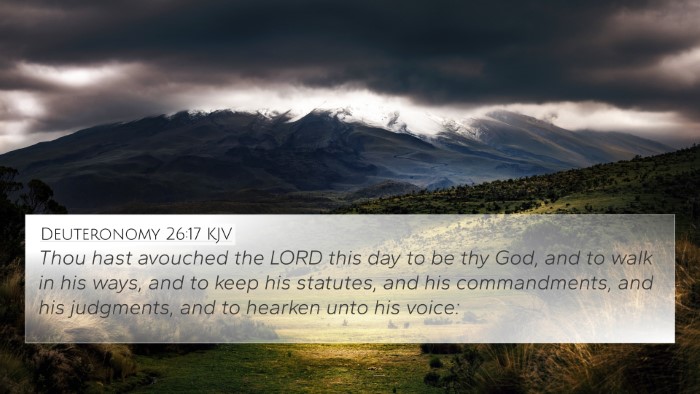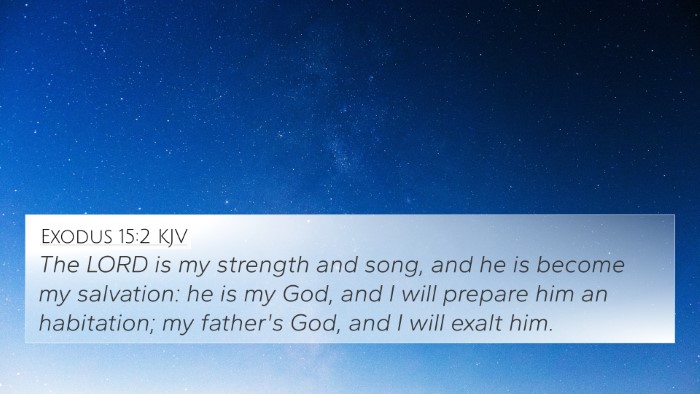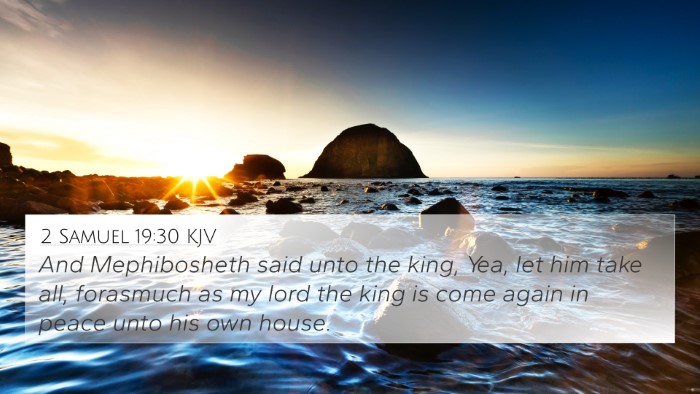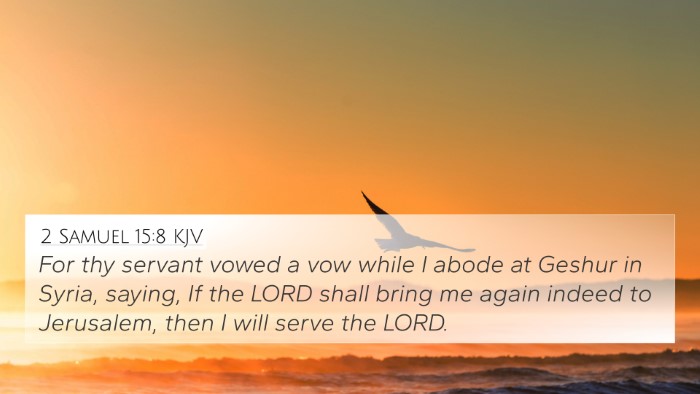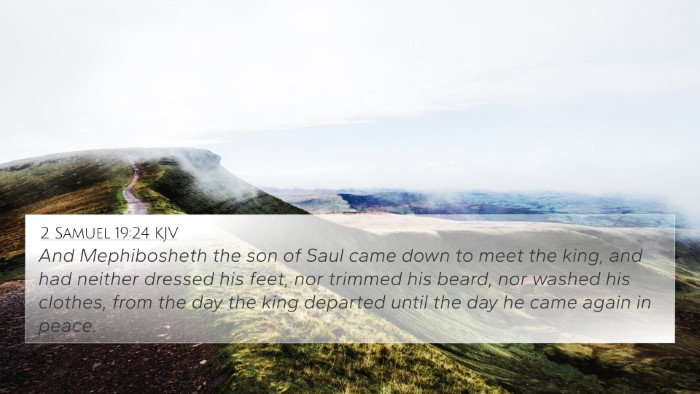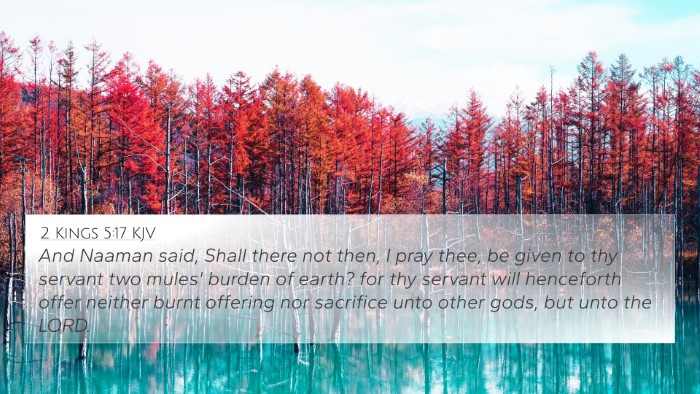Understanding Genesis 28:21
Genesis 28:21 states: "So that I come again to my father's house in peace; then shall the LORD be my God." This verse captures Jacob's invocation to God during a moment of distress and highlights his desire for divine protection and favor as he embarks on his journey.
Context and Background
In Genesis 28, Jacob is fleeing from his brother Esau, who has threatened his life. He experiences a profound encounter with God at Bethel, where he dreams of a ladder reaching to heaven. This context accentuates the significance of Jacob's vow in verse 21, as he sets forth on an uncertain path, seeking assurance from the Lord.
Commentary Insights
This passage has been interpreted by various commentators, each highlighting different aspects:
- Matthew Henry: He emphasizes the significance of Jacob's acknowledgment of God’s sovereignty and goodness. Jacob vows that if the Lord brings him back safely, he would wholeheartedly accept Him as his God.
- Albert Barnes: Barnes points out the conditional nature of Jacob's vow. He reflects on the necessity of a personal commitment to God, suggesting that Jacob’s relationship with God was initiated out of need—showing God's grace in responding to human weakness.
- Adam Clarke: Clarke draws attention to the theological implications of this vow. He notes that Jacob's request for peace indicates a moral yearning for reconciliation—not just with his earthly family but in his relationship with God as well.
Thematic Connections
This verse establishes several thematic connections within the Bible:
- God’s Covenant: Jacob's journey and vow relate directly to God’s covenant with Abraham and Isaac, highlighting the ongoing divine promise of blessing and protection.
- Prayer and Vows: The act of making a vow to God can be seen throughout scripture, demonstrating the importance of sincere prayer and accountability.
- Peace in God: Jacob's desire for peace is mirrored in passages like Philippians 4:7, which speaks of the peace of God that surpasses all understanding.
Related Bible Verse Cross-References
- Genesis 12:1-3: God's promise to Abraham, establishing the foundation of covenant through family.
- Genesis 32:9-12: Jacob’s later prayer for deliverance from Esau shows continued reliance on God.
- Exodus 33:14: God’s promise of His presence and peace to Moses, reinforcing the importance of divine companionship.
- 1 Samuel 1:11: Hannah’s vow echoes the importance of commitment to God in prayer during distress.
- Psalms 4:8: A reflection on finding peace in the Lord, akin to Jacob’s yearning.
- Isaiah 26:3: The assurance of God keeping in perfect peace those whose minds are stayed on Him.
- Romans 10:13: “For whoever calls on the name of the Lord shall be saved,” emphasizing the power of invoking God in distress.
Conclusion
Genesis 28:21 serves as a poignant reminder of the interplay between human need and divine grace. Jacob's vow encapsulates the essence of faith—a call to rely on God's providential care. The conditions he places on his relationship with God reflect a common human experience: the desire for assurance and peace in the midst of life's turmoil.
Tools for Cross-Referencing Bible Verses
For further exploration of Bible cross-referencing, consider utilizing:
- Bible Concordance: A helpful resource for finding where specific words and themes appear across scriptures.
- Bible Cross-Reference Guide: This outlines connections between significant verses to facilitate deeper study.
- Cross-reference Bible Study: A method for engaging with scripture comprehensively and comparatively.
- Bible Chain References: A tool for following themes and concepts through interconnected verses.
Engagement with Biblical Texts
Understanding Genesis 28:21 opens doors to greater exploration within the broader narrative of scripture. By engaging with Biblical texts through various cross-references, readers can discern deeper themes and their implications in both Old and New Testament contexts. This approach thus enriches the journey of faith and theological understanding.
